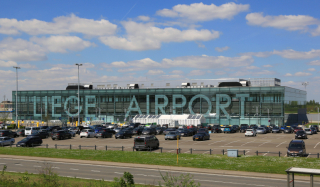
According to Ernst & Young's Belgian Attractiveness Survey, Belgium welcomed 267 investment projects last year, resulting in the creation of 5,401 jobs. As such, our country retains its spot in the Top 5 European countries attracting the most foreign investment, behind France, the United Kingdom, Germany and Spain. Due to the current crisis and in order to maintain this impressive ranking, far-reaching measures to support businesses will need to be adopted, to reassure and continue to attract foreign investors.
Following a record year in 2018, Belgium maintained almost the same level of foreign investment in 2019: 267 new investment projects were initiated (-4% compared to 2018) including 197 entirely new projects, confirming the attractiveness of the country.
The fact that there have never been as many new investment projects as in 2019 shows that we are actually in a better position than last year and that a solid foundation has been created for growth in the years to come.
In 2019, the United States was the leading investor in Belgium, with a total of 45 projects, closely followed by France, with 42 projects. The United Kingdom continues to find Belgium particularly attractive: its investments increased from 13 in 2017 to 25 in 2018 and 34 in 2019. The Netherlands and Germany complete the top 5, with 28 and 24 investments respectively in Belgium last year.
These five countries accounted for 65% of the foreign investment in our country in 2019.
Three activities attracted a significant number of investments in 2019: the sales and marketing sector with 105 projects, the manufacturing industry with 60 projects and logistics with 51 projects. These sectors account for more than 80% of the foreign investment made in Belgium last year.
As regards the figures per region, and in terms of actual investment figures, Wallonia and Brussels recorded 64 and 76 investment projects respectively in 2019, i.e. an increase of 33% for Wallonia and 25% for Brussels. In terms of job creation per project, Flanders and Wallonia continue to maintain the strong trend of more than 27 jobs per project, while the projects in Brussels created virtually no jobs.
However, the impact of the COVID-19 crisis is currently a cause for concern. At the European level, a survey conducted by EY in April 2020 revealed that only 11% of the companies surveyed believed that Covid-19 will not change their investment plans in 2020.
For the projects announced in 2019, 25% have been delayed and 10% have been cancelled.
This unprecedented situation calls for decisive action on the part of the various authorities in Belgium. The coronavirus crisis will lead to new macroeconomic dynamics. It is now clear that various economic sectors will need to reinvent themselves, to make our economic fabric more resilient.
Mobility is a very important factor when it comes to deciding whether to invest in one country over another. And although the figures of the 2020 Survey show an encouraging improvement in the perception of the quality of mobility in our country, enhancing our infrastructure will become an important criterion for companies. In response to the crisis, these companies will be looking to reduce the risks to their supply chains, by broadening their logistics options.
Other decisive criteria are corporate tax and labour costs. In effect, many of the firms surveyed believe that, in order to improve its productivity, Belgium needs to focus on reducing taxation (including on labour), developing education and skills, and supporting the technology industry and innovation.
Another significant trend that emerges from the Survey is the growing importance of green technologies. Almost one third (30%) of the respondents believe that this sector will be the main engine of growth in Belgium in the coming years (last year it was only ranked 5th). Two thirds of the respondents further stated that support for green technologies plays an important role in their investment decisions.
If Belgium provides the necessary support and if investment in this sector continues to grow, it could establish itself as a leader in the field of green technologies, and all the more so if it manages to link the development of these technologies to the Covid-19 virus.







